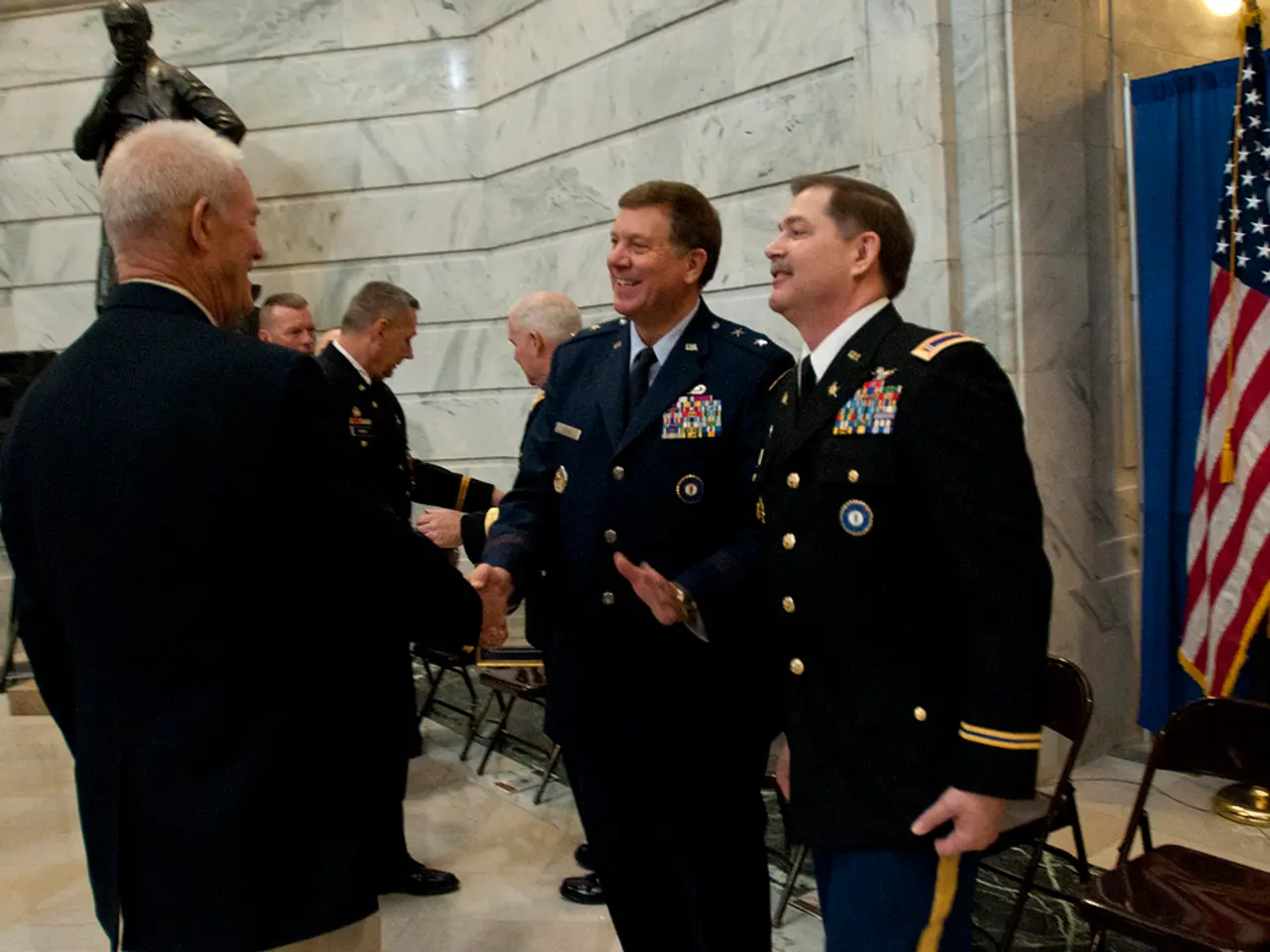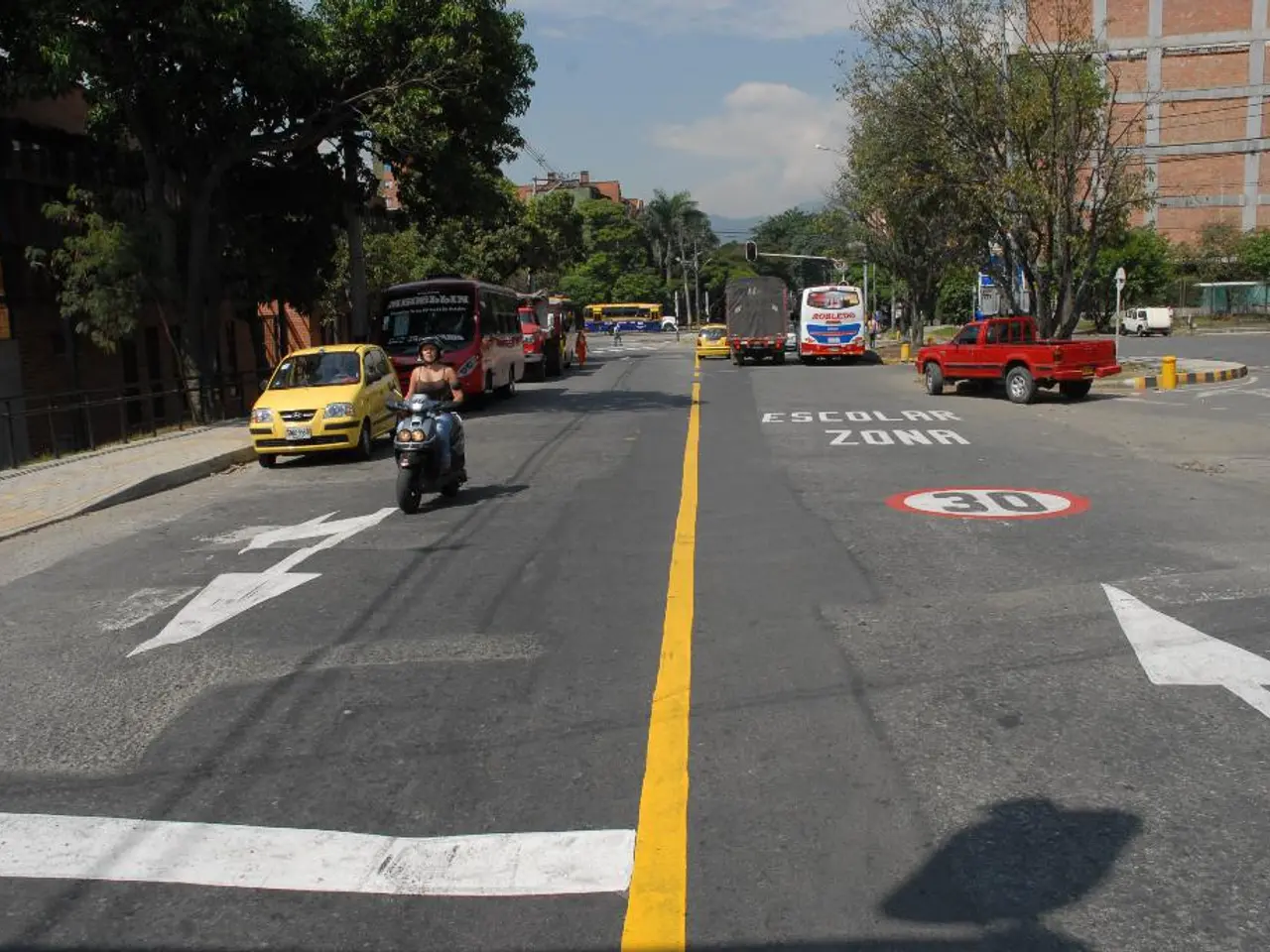Chamber Justice Battle in Münster: Constitutional Court Ponders Fund Mishap during Pandemic
- *
Legal Contest over Pandemic Loans at the Constitutional Court - Conflict Regarding Pandemic Loans Before the Highest Judicial Court
The financial fiasco at the end of 2022 has put the North Rhine-Westphalian Ministry of Finance under scrutiny. The SPD and FDP are gathering steam, urging the Constitutional Court of North Rhine-Westphalia to weed out any potential budgetary rule violations. Recently, a heated exchange of arguments took place in Münster's courtroom between the parties involved and the judges. The Constitutional Court intends to deliver its verdict on September 16.
The feud revolves around the budget and the parliamentary "king's right" to control financial matters. Given the belief that their rights have been infringed upon, the opposition initiated an "organ dispute procedure" in Münster. The crux of the opposition's argument is that the state government allegedly acquired loans worth approximately 4.5 billion euros in late 2022. These funds were intended to cover direct and indirect costs related to the COVID-19 pandemic through a rescue fund ratified by the state parliament in 2020.
However, the necessity for these funds disappeared as the pandemic began to subside. Consequently, the NRW rescue plan was discontinued in the final weeks of 2022, shortly after the loans were issued. The SPD and FDP accuse the government of exploiting the purpose of the loans and planning to channel the funds into the 2023 budget.
Finance Minister's Crossroads
During the trial, Finance Minister Marcus Optendrenk (CDU) acknowledged a challenging situation within his department. As early as September, proactive measures were put into motion to engage in the capital market. An employee explained this predicament and the lengthy lead time of roughly four weeks. Memories of a possible resurgence of COVID-19 were still fresh, and associated costs for vaccines and protective equipment were uncertain at the time. The minister argued, "We couldn't halt this action without damaging our trust with investors."
The constitutional judges raised questions at this juncture, impressing upon the minister for clarification. Specifically, what action did that imply? "If we had canceled, we might have had to pay higher prices to access funds in the future," the minister explained. The minister further emphasized that the purpose of the funds never wavered.
SPD and FDP, on the contrary, maintain that the loans were merely parked and then earmarked for the subsequent year, which represents a violation of the rules. The president of the Constitutional Court, Barbara Dauner-Lieb, hinted at a rigorous analysis by the judges during the trial, refraining from offering any definitive opinions.
- *
Münster* SPD* Constitutional Court* Heating* FDP* BMF* Pandemic* COVID-19* CDU* North Rhine-Westphalia
Insights:
- Despite the opposition's concerns, there is currently no conclusive evidence indicating a violation of budgetary rules by the NRW Ministry of Finance in relation to pandemic loans.
- Official statements from NRW’s Finance Minister highlight the importance of spending discipline and prudent resource management.
- The government's actions in taking loans seemed to be a precautionary measure to secure funds for future unexpected costs associated with the pandemic, rather than misusing them for the 2023 budget.
- The parliamentary groups' allegations that the funds were misused for the 2023 budget remain unsubstantiated at present.
- The ongoing constitutional court case in Münster is questioning the North Rhine-Westphalia Ministry of Finance's financial practices during the COVID-19 pandemic, with the SPD and FDP urging an investigation into potential budget rule violations.
- The heart of the dispute revolves around the use of a rescue fund intended for pandemic-related costs, with the opposition arguing that the funds were instead planned to be channelled into the 2023 budget.
- In defense, Finance Minister Marcus Optendrenk has explained that the loans were a precautionary measure to secure funds for potential future pandemic-related costs, and not a misuse of funds for the 2023 budget.




